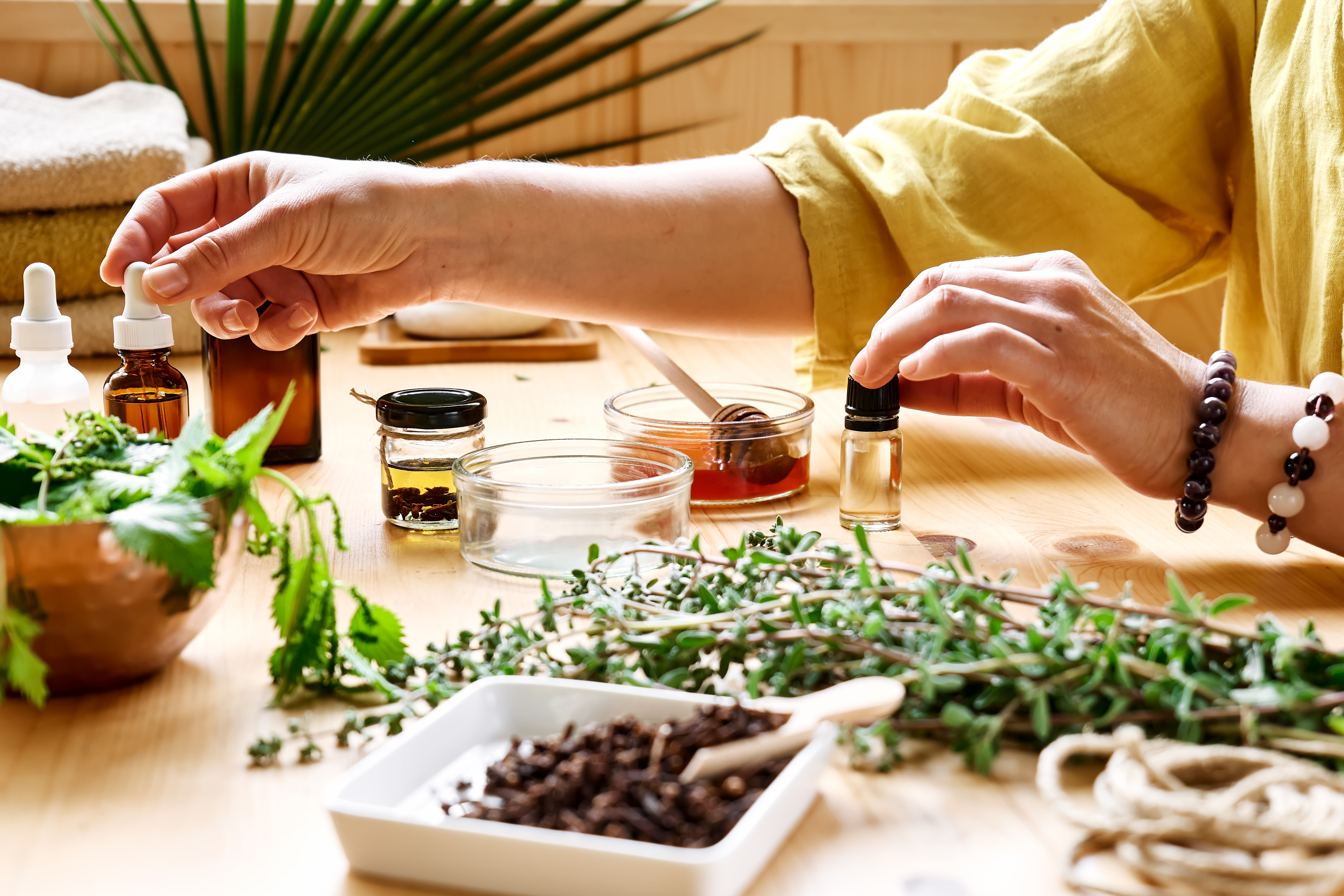
Homeopathy versus naturopathy
HOMEOPATHIC CLINIC IN BRISTOL, STROUD OR ONLINE
Homeopathy
Homeopathy is a system of medicine developed in the late 18th century by Samuel Hahnemann. Hahnemann was trying to cure the toxic effects of quinine. Whist doing so he discovered that if he diluted the quinine then succussed the dilution (vigorous shaking) over and over again, he obtained a highly diluted tincture which had the property of curing the exact symptoms that quinine toxicity produced in the first place. Since, this phenomenon has been replicated over and over again.
For the 19th century Newtonian physics this sounds unexpected. For our 21st century minds to conceive that an energetic quality creates a disturbance in the field (that which we call symptom) and a similar energetic resonance balances the dissonance (that which we call cure) is starting to make a lot of sense (see my blog Everything is vibration and resonance).
The name “homeopathy” was given to this method from Ancient Greek ὅμοιος hómoios, “similar” and πάθος páthos, “suffering”. In contrast, mainstream medicine is “allopathic” from aλλoς, állos, “other”. So, in other words, Homeopathy has to tune to the exact frequency of the body, whilst Allopathy treats symptoms with something “other”, something foreign to the body (see my blog Homeopathy and conventional medicine).
The role of the homeopath is to gather a complete picture of the symptoms of the patient on all levels (physical, emotional, mental) and to match it with a symptom picture of a remedy, in the same way that Hahneman did with the quinine. There are more than 3000 remedies in homeopathy, hence the task of a homeopath is a tall order. It requires enormous attention to detail, a vast knowledge and an intuitive sense. It goes without saying that the treatment you would receive from a homeopath is highly individualised.
Thus, homeopathy uses only oral remedies which are produced from substances from all natural realms (mineral, plant, animal) in a highly diluted amount. It is not the chemical properties or the amount of substance used, but something beyond the purely quantifiable amount of substance which is curative in a remedy.
Naturopathy
Naturopathy originated in the 19th century and draws from a variety of traditions, including herbal medicine, nutrition, hydrotherapy, and lifestyle. Naturopathy aims to use all possible means to treat a body naturally. In doing so, it draws inspiration from many well established systems of health (herbalism, Chinese medicine, Ayurveda, homeopathy). The College of Naturopathy spends a module in each of these well-established systems without going into great depth in any of them.
Naturopathy also incorporates lifestyle measures, exercise, baths and, most importantly, nutrition. One important focus of naturopathy is detoxing, a field which has become so much more relevant in recent years (as the amount of toxins we are exposed to has skyrocketed). Naturopathy also uses compresses and enemas. In other words, naturopathy is an eclectic field which does ‘a little bit of everything’. A lot of what used to be naturopathy has developed today into what is called Functional Medicine – this focuses on diet, detox and nutrition whilst using modern laboratory testing to identify hormonal, biochemical, and microbiome imbalances.
At the core of naturopathy lies the belief that body has an inherent ability to heal itself when supported by natural means. That is very similar to homeopathy, which aims to stimulate the body’s ability heal itself. Whilst naturopathy removes the physical blockages (bad nutrition, toxins, bad lifestyle), the work of the homeopath is to wake up the body’s innate healing capacity.
One analogy is that the naturopath cleans and detoxifies the garden, whist the homeopath brings the fertilizer (albeit a natural one) to revive the natural rhythms.
